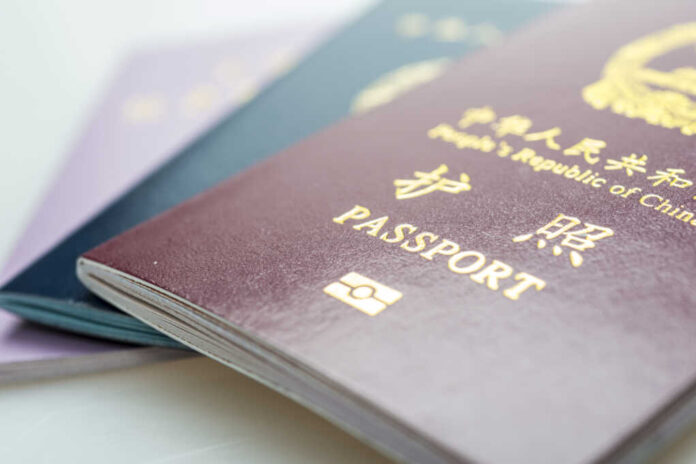Visa Controversy: Trump’s Plan Divides Conservatives

Trump’s proposal to allow up to 600,000 Chinese student visas has triggered fierce conservative backlash, exposing a sharp divide over national security and American values.
Story Snapshot
- Trump’s plan would double Chinese student visas, sparking criticism from his traditional base.
- Conservatives warn of national security risks and displacement of American students.
- The proposal contrasts with earlier strict Trump-era visa revocation policies.
- Debate reveals deep tension between economic needs of colleges and safeguarding U.S. interests.
Trump’s Student Visa Proposal Sparks Conservative Alarm
President Trump’s statement in August 2025 that he is considering allowing up to 600,000 Chinese student visas has surprised many conservative voters and lawmakers, according to reporting from Fox News and CBS Austin. The move, floated during high-stakes trade negotiations with China in August 2025, would effectively double the current number of Chinese students in American universities. Trump argues this influx is critical for the financial survival of many colleges, especially those outside elite circles, insisting that international students prop up essential revenue streams. However, the scale and timing of the proposal have intensified scrutiny from conservative voices concerned about its impact on the nation’s security, educational standards, and core values.
Conservative politicians and commentators have responded with swift opposition, voicing frustration on social media and in interviews. Rep. Marjorie Taylor Greene (R-Ga.) and conservative activist Laura Loomer have publicly criticized the proposal, warning it could disadvantage American students and contradict Trump’s earlier ‘America First’ policies. Secretary of State Marco Rubio, who recently announced aggressive revocation of visas for Chinese nationals with ties to the Chinese Communist Party or sensitive research fields, emphasizes the need for rigorous vetting. Critics highlight the risk of intellectual property theft, espionage, and the failure of student exchanges to foster American-aligned attitudes among Chinese elites.
National Security and Educational Integrity Under Fire
Commentators such as Glenn Beck from BlazeTV and Peter Schweizer from Government Accountability Institute have argued that significantly increasing Chinese student visas could risk U.S. research security and technology transfer. According to data from the Institute of International Education, a large majority of Chinese students in the U.S. pursue STEM degrees, which critics say raises concerns about technology transfer and potential espionage risks. Historical precedent supports these concerns: prior Trump-era policies restricted visas for students linked to Chinese military institutions and responded to ongoing investigations of alleged academic espionage. While universities contend that international enrollment is vital for financial and academic stability, opponents assert that insufficient vetting could erode constitutional protections and national sovereignty.
University administrators and economic analysts point to the post-pandemic financial struggles of higher education institutions, many of which now rely heavily on international tuition. Proponents of Trump’s plan emphasize the economic and diplomatic benefits of educational exchange, suggesting that engagement could ease broader U.S.-China tensions. Yet, critics maintain that economic incentives cannot justify policies that risk undermining the safety and opportunities of American students and taxpayers. The proposal has sparked a larger debate within the conservative movement about balancing economic interests with constitutional safeguards and national security.
Divided Conservative Movement and Policy Uncertainty
The backlash against Trump’s visa proposal reveals deep divisions among conservatives, with some prioritizing the fiscal health of colleges and others demanding strict adherence to “America First” principles. Prominent voices argue that welcoming hundreds of thousands of Chinese nationals could erode trust in American institutions and embolden adversaries. The administration insists that vetting will remain stringent and that the policy is not yet formalized, but uncertainty persists over how these promises will be implemented. The debate underscores broader anxieties about government overreach, globalist agendas, and the erosion of traditional American values in the face of foreign influence.
As of late August 2025, no formal change has been enacted, but the controversy is expected to shape political discourse and policy decisions in the months ahead. The outcome will have lasting implications for U.S.-China relations, the future of higher education, and the conservative movement’s ability to reconcile economic necessity with the defense of national integrity. The stakes are high for American families, students, and taxpayers who seek reassurance that their interests remain paramount amid shifting global dynamics.
Sources:
Trump ignites conservative backlash opening door 600,000 Chinese students ‘madness’ | Fox News
Trump faces backlash floating student visa expansion Chinese nationals American universities cabinet meeting colleges America First Marjorie Taylor Greene Xi Jinping | CBS Austin
New Visa Policies Put America First, Not China | U.S. State Department







